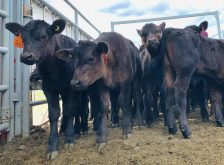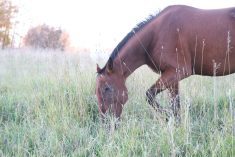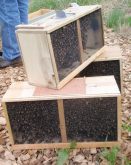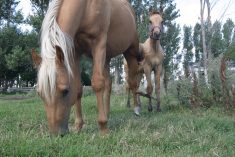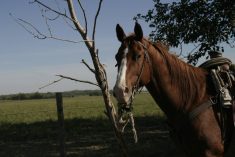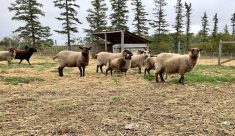horse health Bagged feeds and supplements are no substitute for good forage and regular turnout
Your horse’s overall diet, nutrient needs, health and level of activity are key factors in determining whether or not supplementation is necessary.
A growing trend of overfeeding and oversupplementing horse’s diets is not only economically wasteful, it is often detrimental to the health of the horse. Looking to “supplementation” to resolve errors in dietary or husbandry fundamentals is a flawed progression of thought.
Long-stem forages, quality water, free-choice minerals and a natural salt source are fundamental elements in an equine diet. Well-maintained pastures and quality grass or grass-mix hays are unquestionable staples.
Read Also
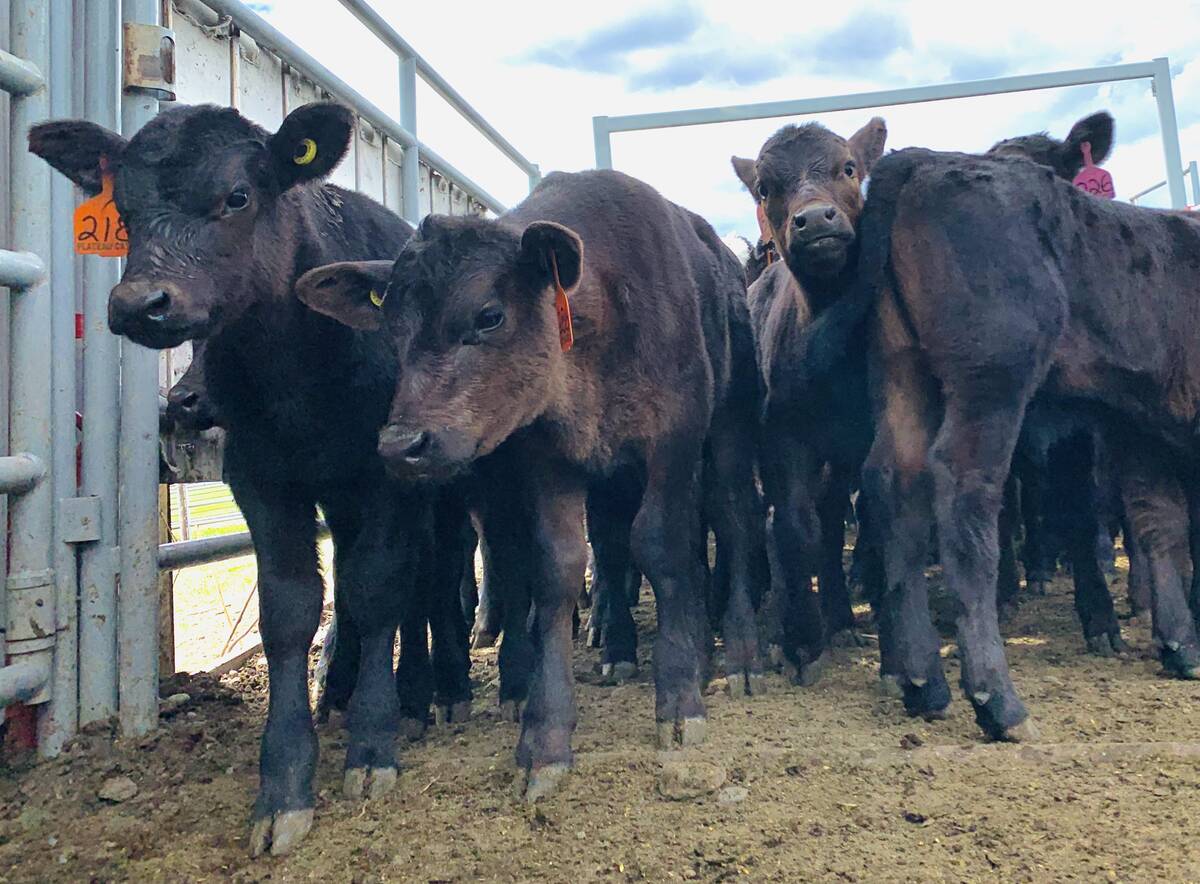
How ‘care and compassion’ protocols drive performance at this Alberta ranch
Plateau Cattle Company says lowering stress in calves using science-based practices leads to higher weaning weights and better animal health.
As a general rule horses need to consume about two per cent of their body weight in feed daily with most or all of that coming from forage. This equates to 20 pounds (nine kg) for a 1,000-pound (450-kg horse). All that fibre is critical for maintaining a healthy hind-gut ecosystem. It is your horse’s major source of energy.
Many horse owners have come to believe their horses’ diets are not nutritionally balanced unless they are fed processed grains or other supplements. This is often untrue.
Supplementation or more correctly “replacement” of fibre-rich forages by commercial sweet feeds, processed grains, and treats is generally an unhealthy praxis. The growing trend for “bagged” feeds as a replacement for natural forages parallels an ever-increasing incidence of metabolic failures, endocrine disturbances, skin diseases, generalized inflammation, laminitis, gastrointestinal ailments, leaky gut syndrome and general malaise in horses.
Remember that mental, emotional and physical well-being are integrated with a horse’s digestive health and cannot be overlooked when a nutritional program is evaluated and implemented. Access to ample free-choice long-stem forages and movement/exercise are critical for digestive health.
Superfluous supplementation/s comes is various guises. At times horse owners may feed multiple supplements giving little consideration as to the influences that combining may have. For example an excess of one mineral can indirectly decrease the absorption of another mineral. Oversupplementing can lead to unsettled “quirky” behaviours in horses with unusual skin ailments and/or allergies as the body uses the skin as an organ of elimination.
Owners may have a sense that a supplement would be beneficial yet they are unable to access guidance as to the appropriate supplement to meet their horse’s needs. This can often lead to a mismatch between the supplement chosen and the one needed.
Unfortunately poor-quality products do exist as many supplements are not regulated. The ingredient necessary for the supplementation may be on the label and in the product yet its bioavailability or availability to the horse is poor. Minerals need to be presented in a manner which the body recognizes, absorbs and assimilates. Carbonates, oxides, and sulphates are all combinations of minerals that appear on labels yet are not well recognized by the horse’s body.
When well chosen, a supplement will need consistent daily administration according to label directions. This consistency is necessary to evaluate its effect. Earliest comments on positive changes may occur as soon as the first few weeks with some products yet many supplements may require prolonged treatment to perceive effects. Knowing when to make an assessment as to the effectiveness of a supplement is important. Supplement schedules require continual assessment to be of value to the horse. Furthermore recognize each horse to be an individual and response to products can vary tremendously.
The council of a well-informed veterinarian or equine nutritionist can be a critical component in wise supplementing offering valuable insight when health and performance concerns are present. Well-informed advice from the experts generally simplify and strengthen the basics of the diet and husbandry. Surprisingly corrections to the diet are often made by removing what was originally thought to be good supplements. As a result of simplifying and cleaning up the diet, symptoms of ill health and poor performance can and do naturally disappear.



